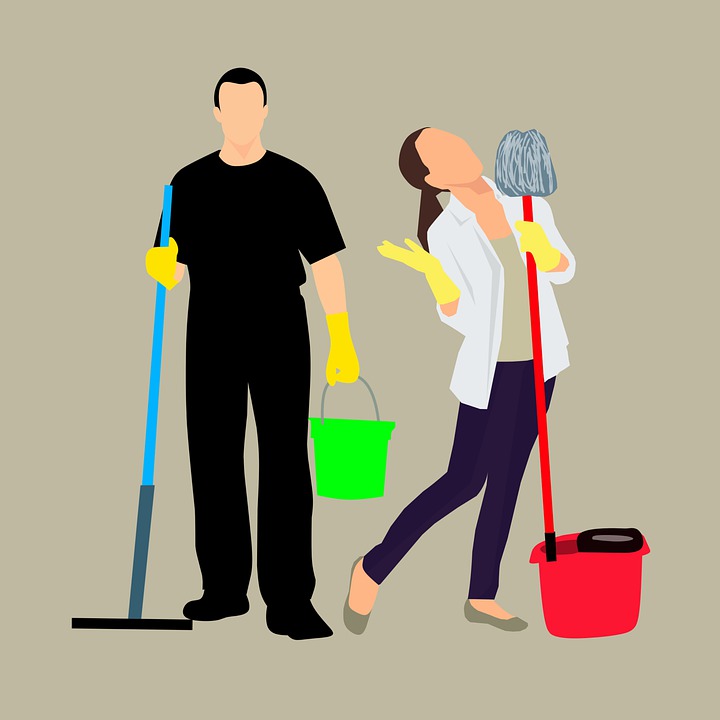Emma Dauster HOW IT WORKS
dopamine reward neuroscience anticipation
Why Don’t We Keep Resolutions?
“I’m going to finish my paper this week.”
“I am not eating any more junk food.”
“Today’s the day I start exercising.”

Figure 1. Any of these resolutions sound familiar? Source left to right: Startup Stock Photos; Olearys, Flickr; Amanda Mills, Pixnio.
We’ve all made promises to ourselves, but why can’t we follow through with these goals? As it turns out, we’re still happy without completing our goals. But we keep coming back to them, and proclaiming for the thousandth time that this will be the last scoop of ice cream… What causes us to fall into this endless cycle of broken promises?
Do we find joy in accomplishing a task or in the idea of accomplishing a task? Ultimately, anticipating the reward might make us happier than receiving it [1,2]. Think about it. Don’t we feel great when we make those goals? “I’m going to clean the house! Wow, I feel better already.” As Kim Stanley Robinson wrote in her novel Red Mars, “…the anticipated world was often more rich than anything real” [3]. Good feelings may stem more from the anticipation of something positive than from the positive event itself.

Figure 2. “I’m going to clean the house.” …Or am I? Source: Mohamed_hassan, Pixabay.
To better understand the difference between a rewarding feeling (e.g. happiness or satisfaction) and an external reward (e.g. money), let’s dive into where this internal feeling comes from. One school of thought is that everything we experience in life is the result of various chemicals interacting with specific cells in certain parts of our brains. You’ve probably already heard of dopamine, one of the more commonly recognized chemicals. Dopamine is a neurotransmitter (chemical in the brain) associated with the feeling of happiness. This neurotransmitter is involved in our ability to anticipate and appreciate reward [1,4,5,6].

Figure 3. The chemical structure of dopamine. Source: Cacycle, Wikimedia commons.
Depending on where this chemical is in your brain, it can create happy feelings in response to different stimuli. If you do something rewarding like talk to a friend, dopamine might take effect in a brain region called the amygdala [1]. However, if you’re anticipating that rewarding conversation, dopamine might take effect in a different part of the brain called the striatum [2,7]. The same chemical can influence our internal response by acting in different parts of the brain. For example, a hug might make dopamine abundant in the amygdala, while a paycheck might make dopamine abundant in another part of the brain called the prefrontal cortex. This internal feeling of happiness can be produced by many different external stimuli, and the part of your brain with increased dopamine will vary accordingly, depending on the particular external stimulus.

Figure 4. Wolfram Schultz’s famous experiment shows an increase in activity after reward when the monkey was not expecting one, after anticipating reward when it was given, and after anticipating reward even when it was not given [1].
Now that we know how the internal reward is produced, let’s go back to the external reward. The big question is whether we need to receive the external reward or just anticipate it to produce the internal feeling of reward. Wolfram Schultz’s famous experiments showed that dopamine neurons in a brain region called the ventral tegmental area will respond to the anticipation of a taste reward, regardless of reward receipt [1]. Figure 4 shows how neurons respond or don’t respond based on a conditioned stimulus (training to anticipate reward) and reward receipt. Subsequent studies demonstrated activity in both the amygdala and striatum during anticipation of a taste reward, but not during receipt of the reward [8]. So it seems that whether or not we do the physical thing that should make us happy, just the thought of it will make us happy. We won’t have finished that paper, exercised, eaten healthier, or cleaned the house, but at least we’ll be happy.
For more lab discoveries and research guidance, check out my website @ emmadauster.com
References:
[1] Schultz W, Dayan P, Montague PR (1997) A neural substrate of prediction and reward. Science 275(5306):1593-9.
[2] Rademacher L, Krach S, Kohls G, Irmak A, Grunder G, Spreckelmeyer KN (2010) Dissociation of neural networks for anticipation and consumption of monetary and social rewards. NeuroImage 49:3276–85.
[3] Stanley Robinson K (1993) Red Mars. Bantam Books.
[4] Arias-Carrion O and Poppel E (2007) Dopamine, learning, and reward-seeking behavior. Acta Neurobiologiae Experimentalis, 67(4):481-8.
[5] McClure SM, York MK, Read Montague P (2004) The neural substrates of reward processing in humans: the modern role of fMRI. The Neuroscientist 10(3):260-8.
[6] O’Doherty JP (2004) Reward representations and reward-related learning in the human brain: insights from neuroimaging. Current Opinion in Neurobiology 14:769-76.
[7] Knutson B, Fong GW, Adams CM, Varner JL, Hommer D (2001) Dissociation of reward anticipation and outcome with event-related fMRI. Neuroreport 12(17):3683-7.
[8] O’Doherty JP, Deichmann R, Critchley HD, Dolan RJ (2002) Neural responses during anticipation of a primary taste reward. Neuron 33:815-26.
More From Thats Life [Science]
- CRISPR technology may be a promising tool to combat multidrug resistant fungus C. auris
- How the search for a universal gene forever changed biology: the story of Carl Woese and 16S sequencing
- Quarantine Blues? The Effects of Social Isolation in the Brain
- The Lovebug Effect
- CRISPR: Careful When Running with Genetic Scissors
- More ›
